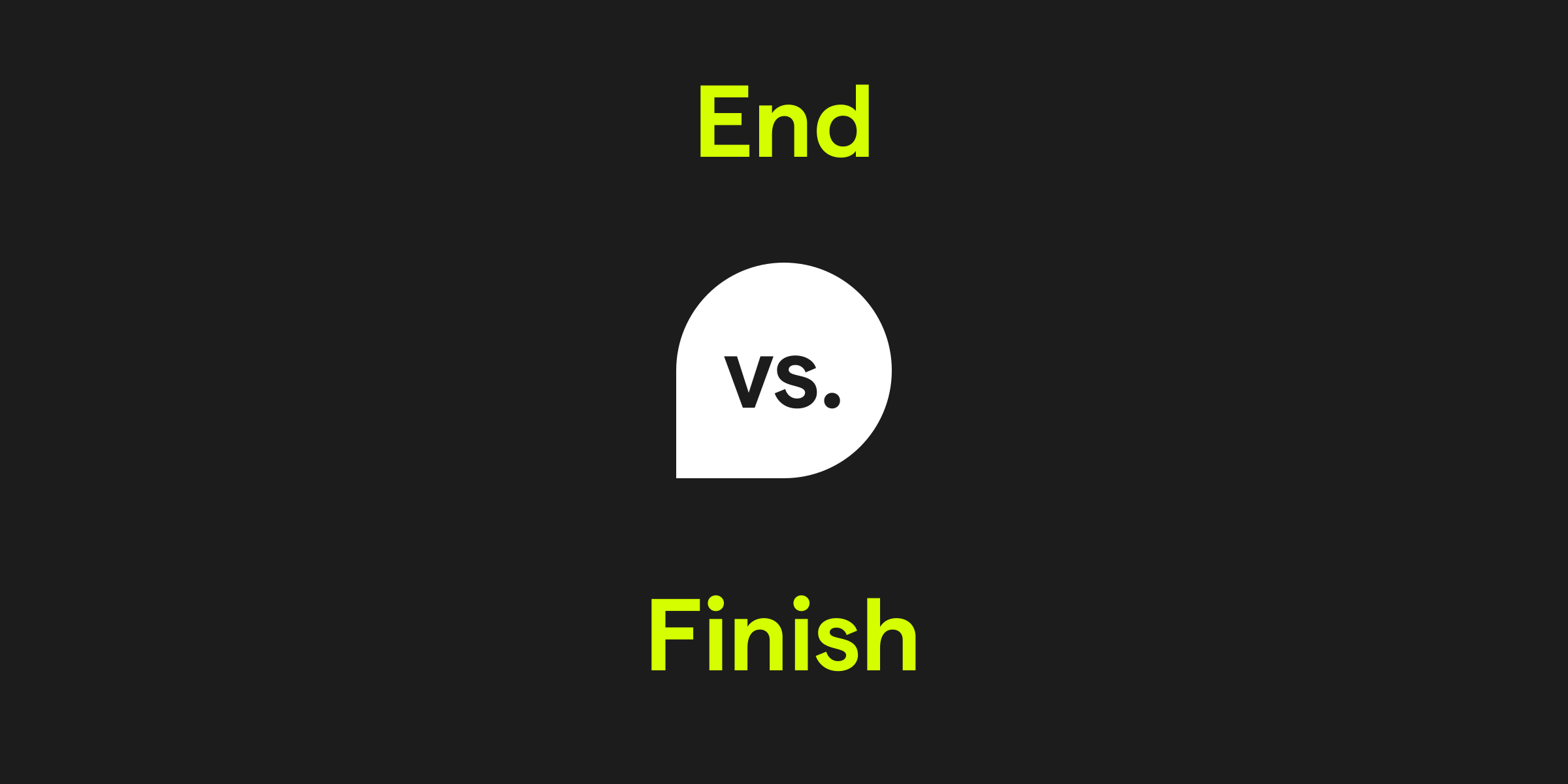End vs. Finish: What's the Difference?
Understanding the correct use of end and finish can subtly influence the tone and clarity of your communication. End typically refers to the point at which something ceases to happen or exist, often used to describe a final part or the conclusion of an event or period. On the other hand, finish implies the completion of an action or process, bringing it to a point where nothing more is left to be done. It commonly conveys a sense of fulfilment or having fully accomplished a particular task or objective.

How do you use the word end in a sentence?
The word end is used to signify the cessation or termination point of an event, action, or period. It can also imply the utmost extremity of physical space. It is important when conveying that something is coming to a halt, either temporarily or permanently. End is versatile and can function as a noun, verb, or as part of a phrasal verb.
Examples of end in a sentence
- The movie ends with a surprising twist.
- He walked to the end of the road and stopped to admire the view.
- The end of the year is a time for reflection and planning.
How do you use the word finish in a sentence?
The word finish is often applied when indicating the completion of an activity or task. Whether it's a race, an art project, or a work assignment, finish implies that a process has been seen through to its conclusion. This term is most appropriate when emphasizing the achievement of reaching the end of a set of activities or goals.
Examples of finish in a sentence
- She was determined to finish the marathon, despite the pain in her legs.
- After weeks of hard work, he finally finished writing his novel.
- Can you finish the report by the end of the day?
End and finish definition, parts of speech, and pronunciation
End definition:
End (noun): A final part of something, especially a period of time, an activity, or a story.
End parts of speech:
End pronunciation:
End: /end/
Finish definition:
Finish (verb): To complete a task, race, or activity fully.
Finish parts of speech:
Finish pronunciation:
Finish: /ˈfɪn.ɪʃ/
End (noun): A final part of something, especially a period of time, an activity, or a story.
End parts of speech:
- As a noun: We will discuss the details at the end of the meeting.
- As a verb: The concert ended with a standing ovation.
End pronunciation:
End: /end/
Finish definition:
Finish (verb): To complete a task, race, or activity fully.
Finish parts of speech:
- As a verb: Please finish your homework before watching TV.
- As a noun: The runner had an impressive finish in the race.
Finish pronunciation:
Finish: /ˈfɪn.ɪʃ/
End vs. finish in a nutshell
In essence, end and finish are close in meaning but with slight nuances that affect usage. End is often the choice when referring to the termination or conclusion of something, while finish emphasizes the completeness of an action or task. Understanding these distinctions ensures precision and nuance in communication. Both terms can function in multiple parts of speech, offering flexibility in sentence structure, and are foundational in discussing conclusions and completions within the English language.
Get AI Writing Assistance Wherever You Type
Make sure your vocabulary is on point and every punctuation mark is in the right place, no matter where you’re working. Grammarly works across more than 1 million websites and apps so you can improve your writing without copying, pasting, or breaking focus.

More Commonly Confused Words
Interest piqued? Pore (not pour) over other commonly confused words to help your writing reach peak (not peek) performance.